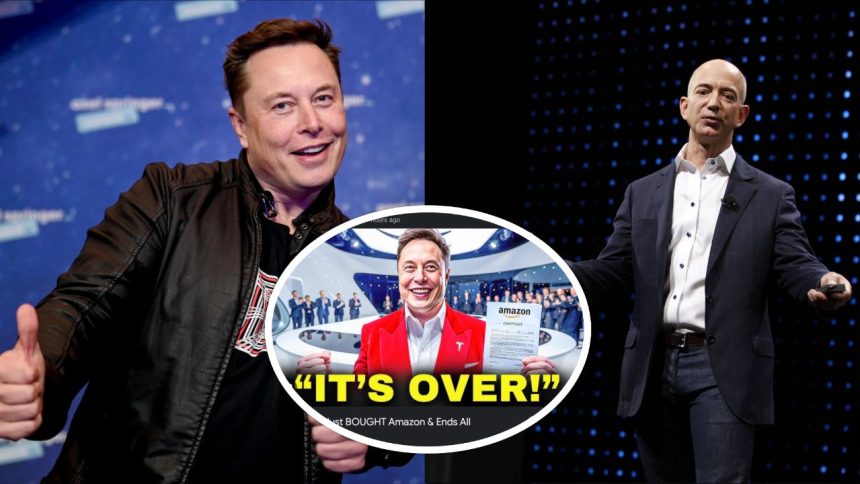We’re in an era where information spreads at such a rapid pace online that it’s become easier than ever for flashy headlines to grab everyone’s attention. Recently, there’s been a claim making rounds that Elon Musk, the billionaire behind Tesla and SpaceX, bought Amazon.
While the speculations about the richest man in the world acquiring the largest e-commerce company might sound interesting or even believable to some given Musk’s track record for bold moves, here’s the truth: it’s completely made up.
Elon Musk Didn’t Buy Amazon—Here’s the Real Truth Behind the Viral Rumor!
The claim about Elon Musk potentially buying Amazon seems to have started with a YouTube video titled “Elon Musk Just BOUGHT Amazon & Ends All Competition!” from the channel ‘Elon Musk Rewind’ on November 15, 2024. Like a lot of similar clips, this particular video uses dramatic, speculative language to grab attention. Although it includes disclaimers noting the content is based on unverified info and shouldn’t be taken seriously, the catchy title alone has fueled widespread misinformation.
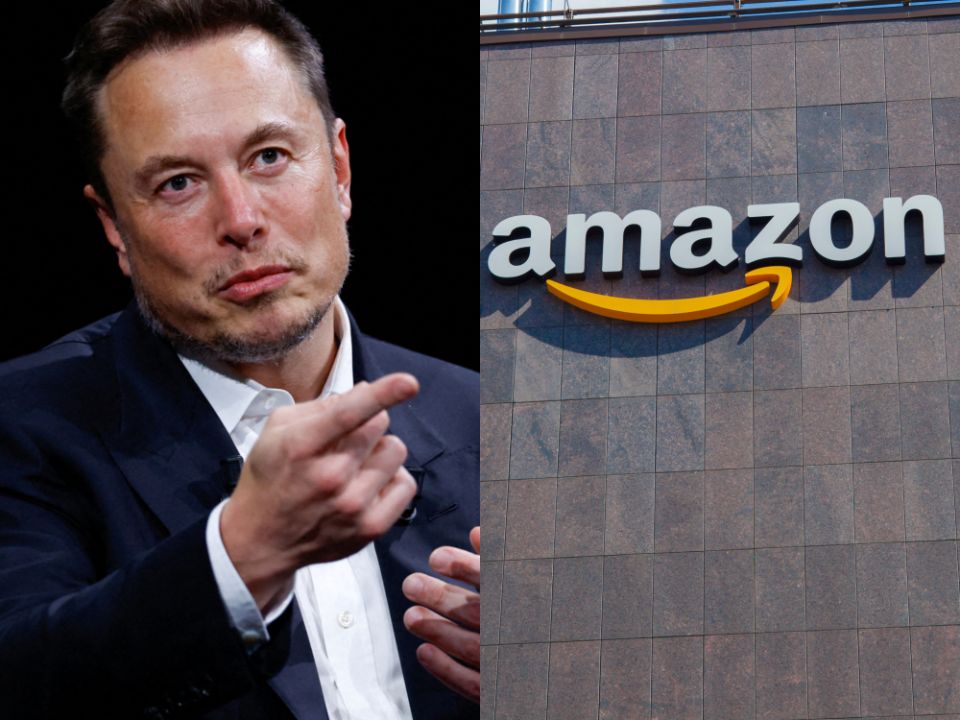
Here’s why the rumor doesn’t hold up. First off, no major or reliable news outlet has reported anything confirming such a huge takeover. Amazon’s market cap is around $2.13 trillion, so the idea of Musk pulling off a buyout is pretty far-fetched. Musk’s net worth stands at a colossal $303 billion as of November 2024, but even if he sold everything he owns (which would never happen), he’d still be way short of what’s needed to buy Amazon.
Moreover, the rivalry between Musk and Amazon’s founder, Jeff Bezos, is pretty well-known. They’ve been going head-to-head in the space race with SpaceX and Blue Origin, with their competition marked by public jabs and legal fights—not talks of one trying to buy out the other.
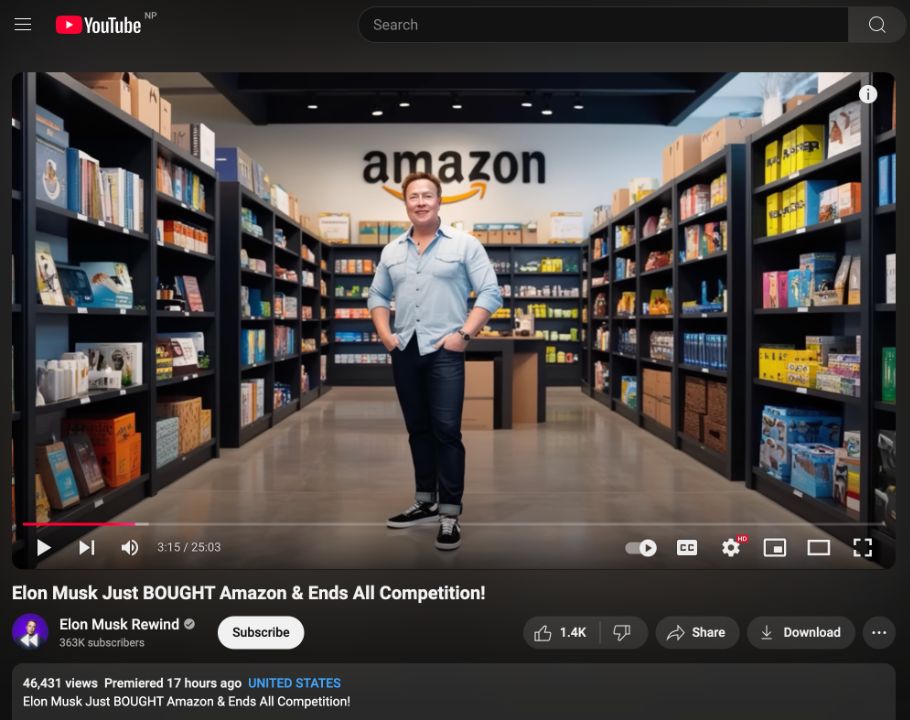
The video—the most obvious case of misinformation—going viral is further evidence of how powerful clickbait and speculation are becoming on platforms like YouTube. Such videos often ride the wave of popular figures, like Elon Musk, to generate engagement. They might include a small disclaimer about being speculative, but let’s be real—most viewers are drawn in by the flashy titles and thumbnails and don’t really notice the description.
This is not the first time someone has dropped a YouTube video about Musk’s supposed acquisition of Amazon. A week earlier, ‘Wealth Up’ posted, “Elon Musk: “I Just Officially Bought Amazon!”” Back in October, another channel called ‘Elon Musk Vault’ spread misinformation with their video, “Elon Musk Just Officially Bought Amazon!” Likewise, ‘Voyager’ published, “Elon Musk: “i am officially buying Amazon”” All these channels have one thing in common—they post fake videos or discuss completely hypothetical scenarios. Either way, their title and thumbnail is utterly misleading.
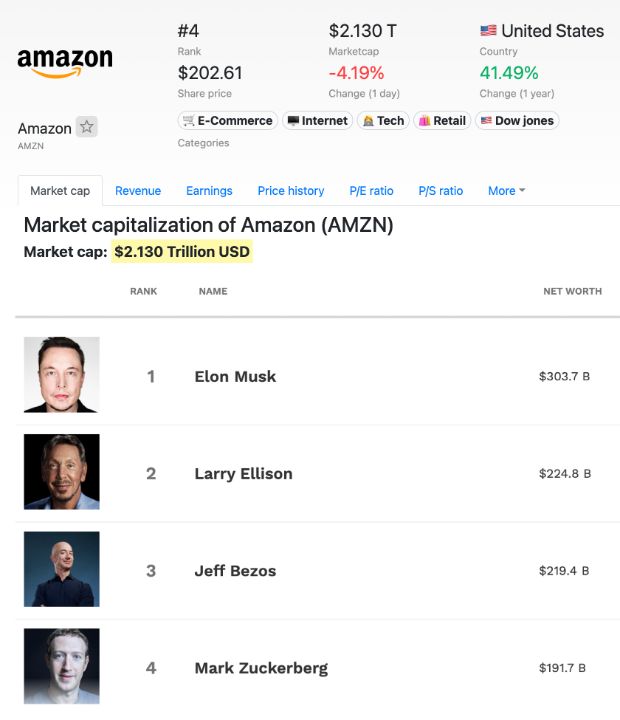
Meanwhile, this rumor is a good reminder of how crucial it is to think critically about what you see online. Before jumping on board with sensational claims, make sure to check reliable sources and double-check the facts. Sure, Musk is known for shaking things up, but the idea of him buying Amazon? Total fiction.
Elon Musk’s SpaceX Outpaces Jeff Bezos’ Blue Origin
Elon Musk and Jeff Bezos have enjoyed a long-standing rivalry in the “new space race,” despite contrasting visions, leadership styles, and individual successes. Both are passionate about space exploration, but their approaches and outcomes couldn’t be more different.
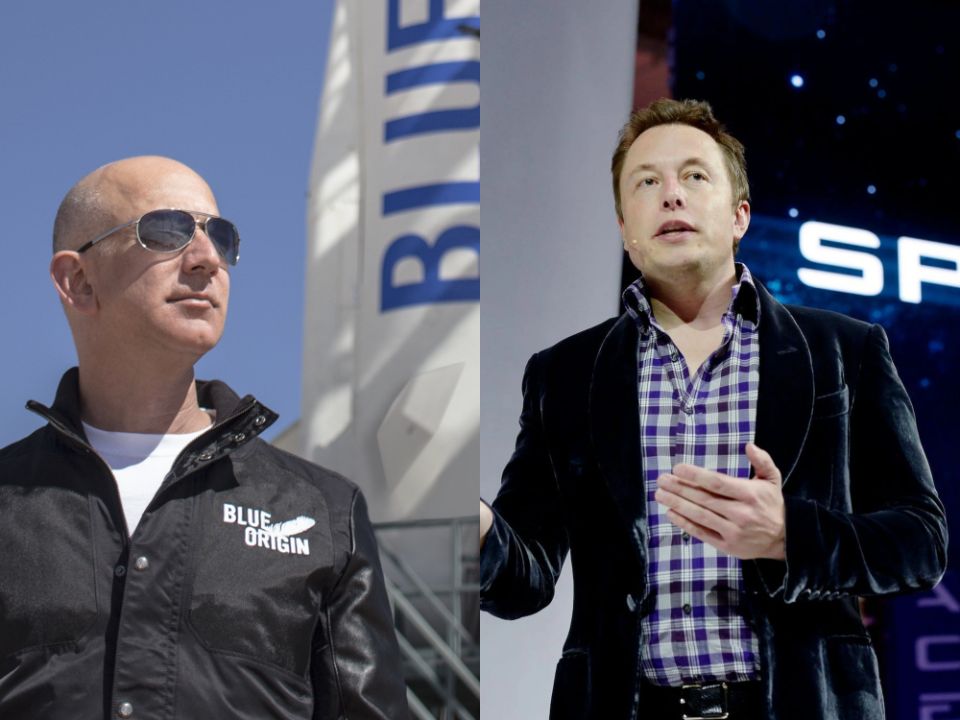
SpaceX, started by Musk back in 2002, has shaken up space tech. With game-changing innovations like reusable rockets—think Falcon 9 and Starship—it’s made space travel way cheaper and more regular. Musk’s hands-on approach and gutsy decision-making have been huge drivers behind the company’s rapid progress. He was quick to spot that reusing rockets was the secret to making spaceflight commercially viable—an idea many experts shrugged off at first, but now it’s changed the whole game.
On the flip side, Bezos started Blue Origin back in 2000, but the company’s been way behind SpaceX. Even with all of Bezos’ resources and his focus on Blue Origin after stepping back from Amazon, the company’s been called out for moving too slowly, lacking clear direction, and not achieving much. So far, its biggest win is a suborbital flight with the New Shepard rocket, while its orbital rocket, New Glenn, is still stuck on the ground—more than ten years late.
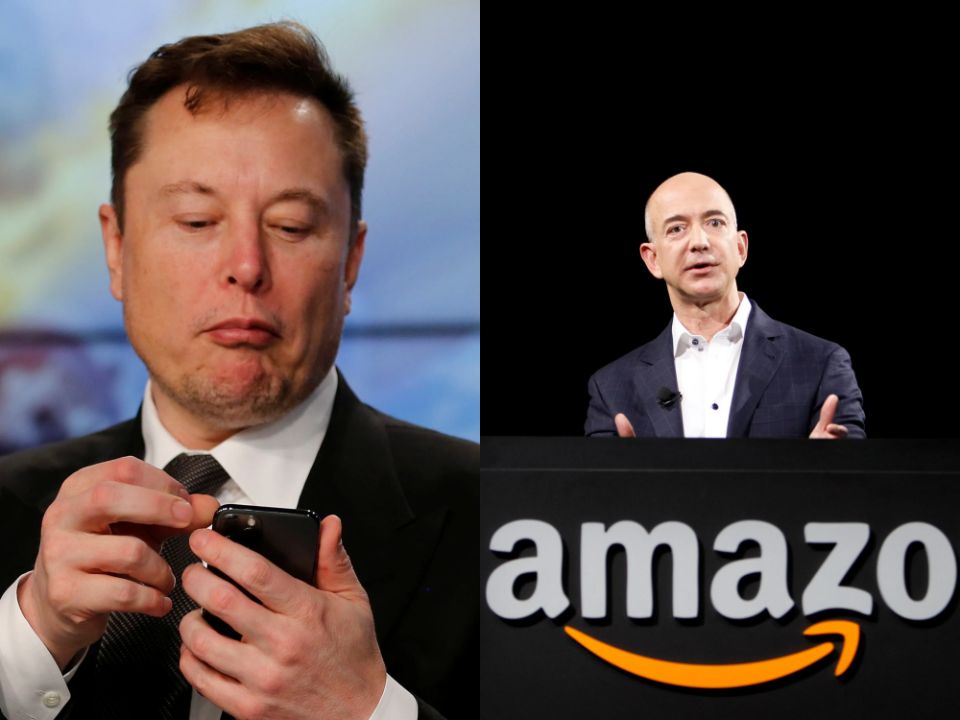
Musk’s sharp execution and vision are on full display with SpaceX’s 175+ successful launches and big NASA contracts. On the other hand, Bezos is struggling to keep up with his slower, step-by-step approach. The rivalry stands out with Musk securing NASA’s prized launchpad 39A, proving SpaceX’s edge in both tech and operations.
Elon Musk’s track record speaks for itself, and it’s not too outlandish to suggest SpaceX, not Blue Origin, is shaping the future of space exploration.

